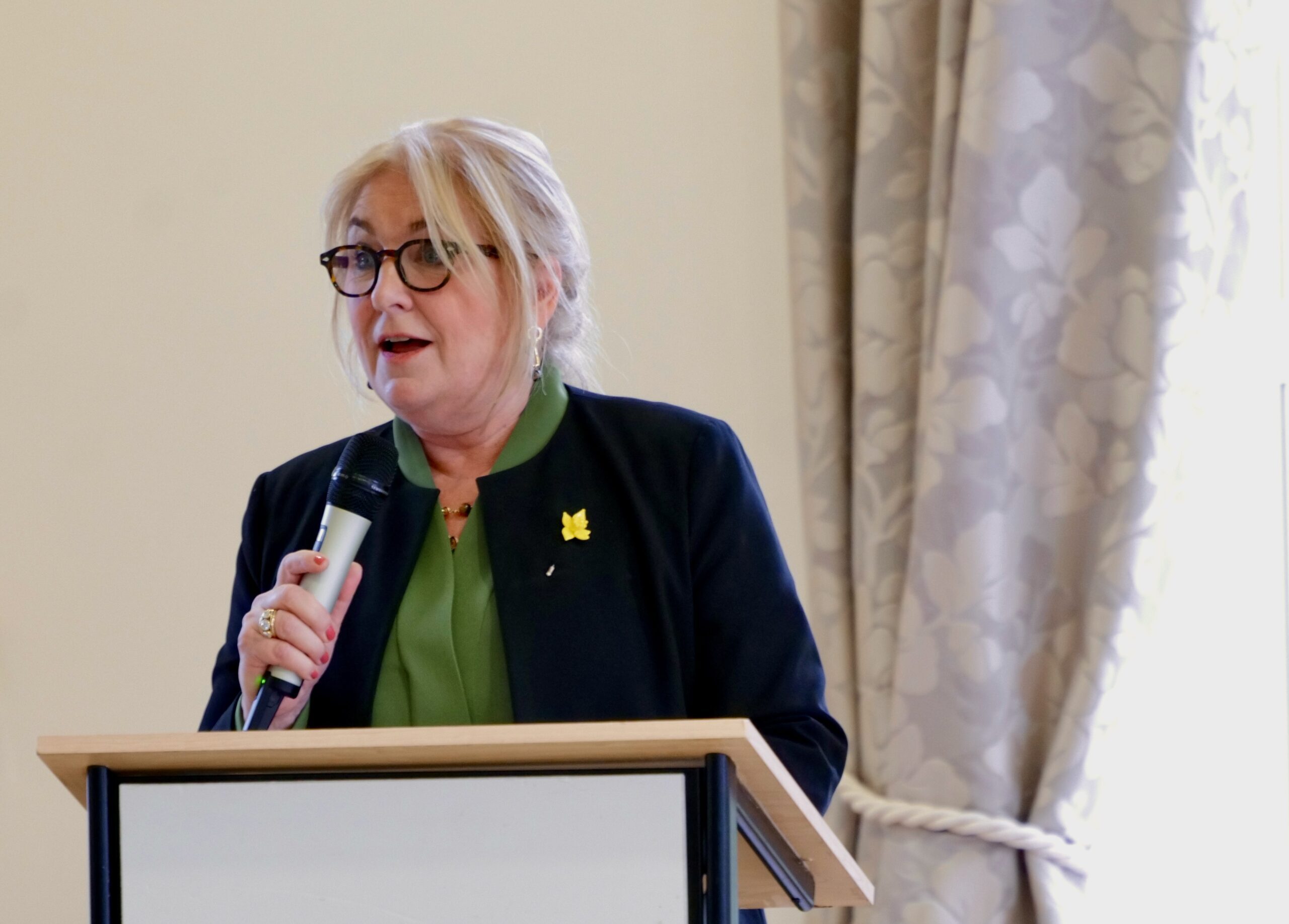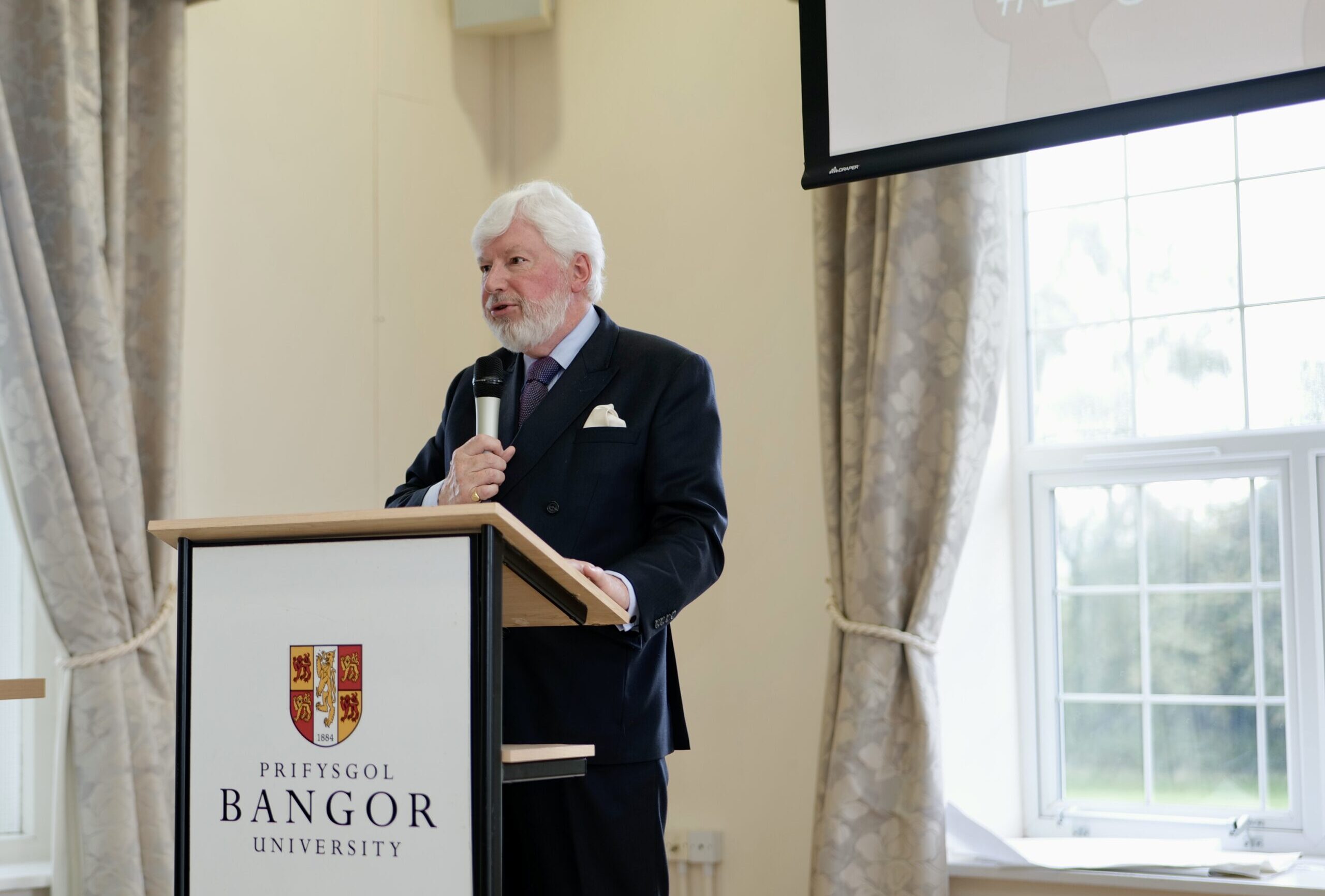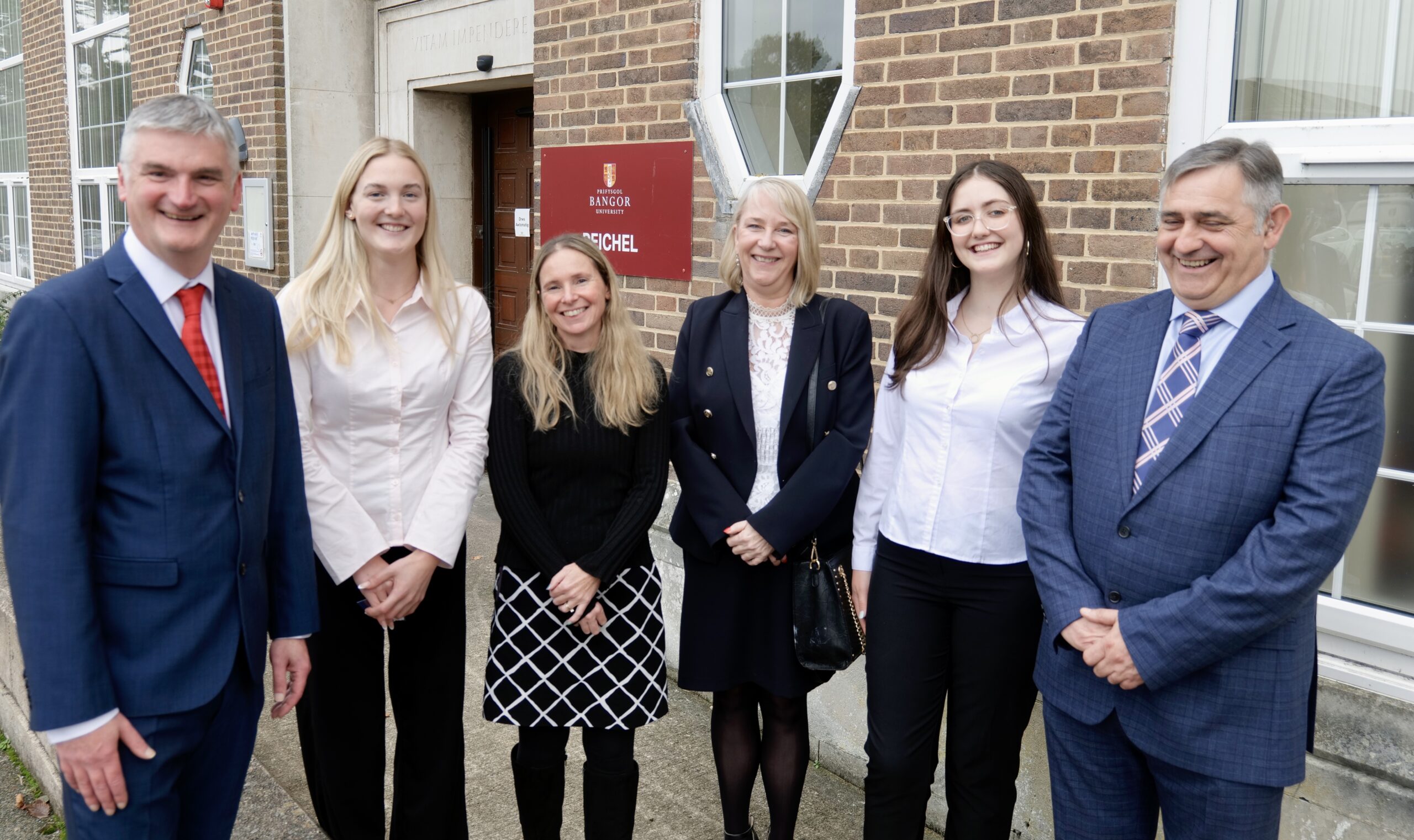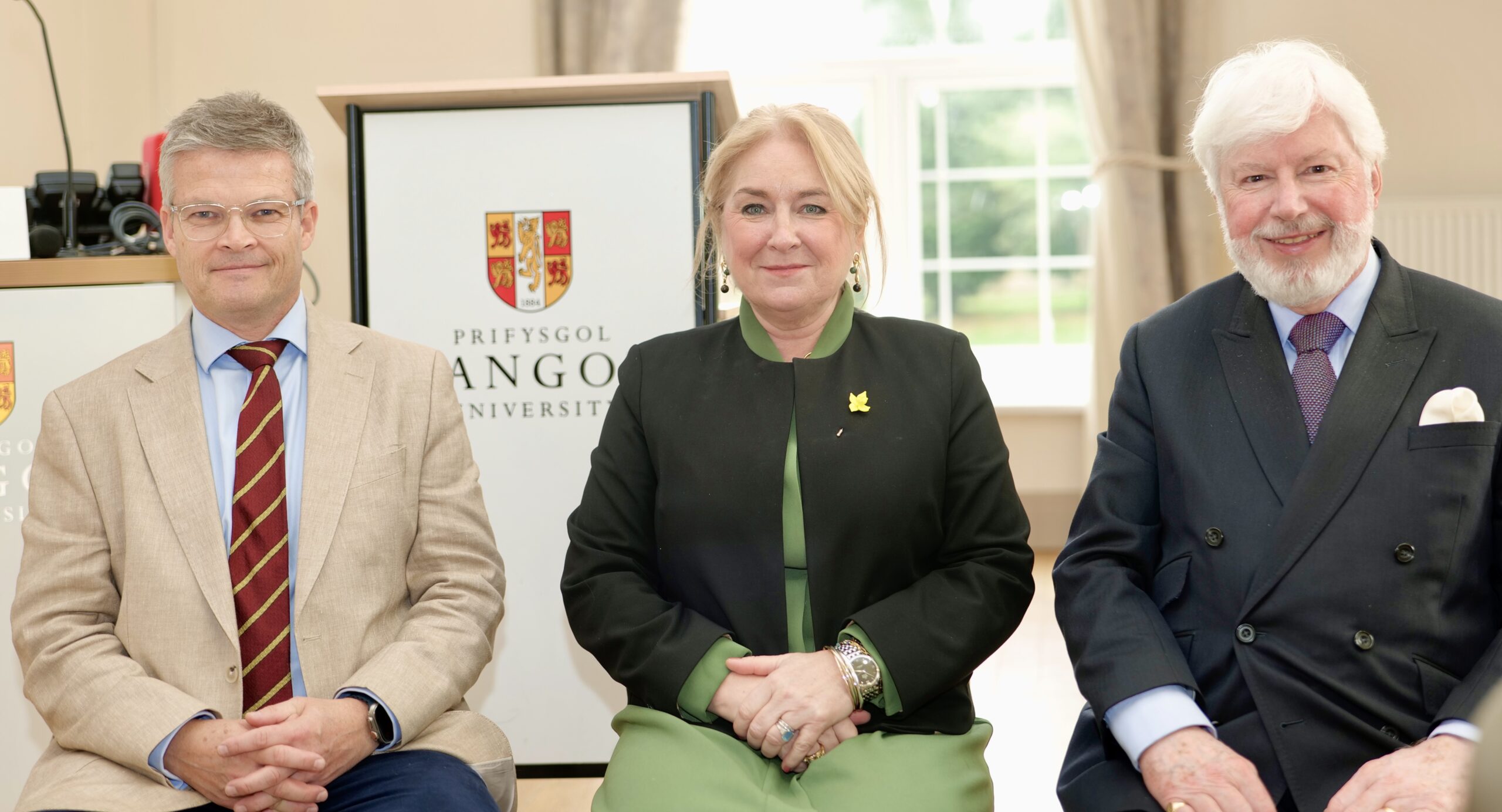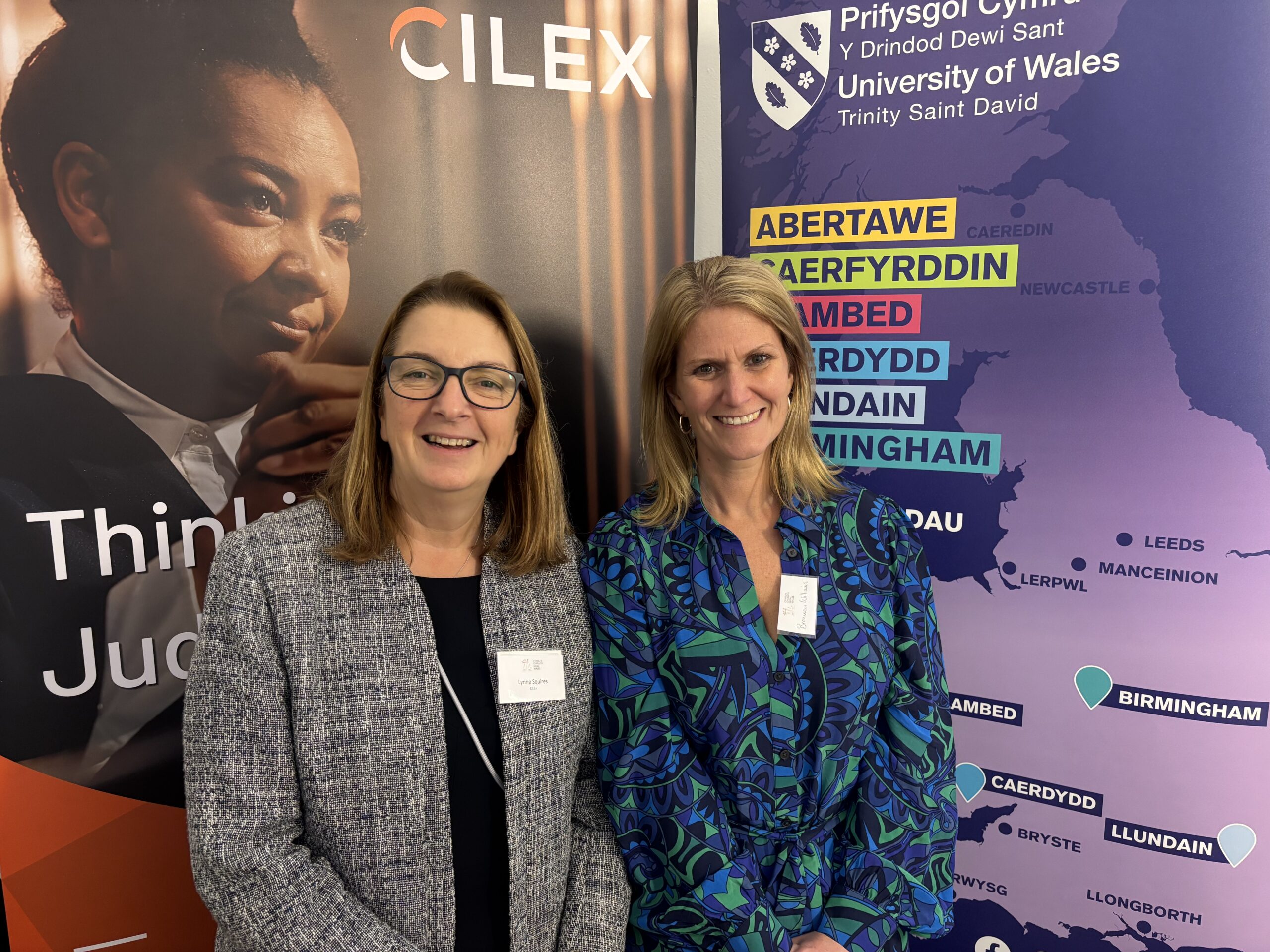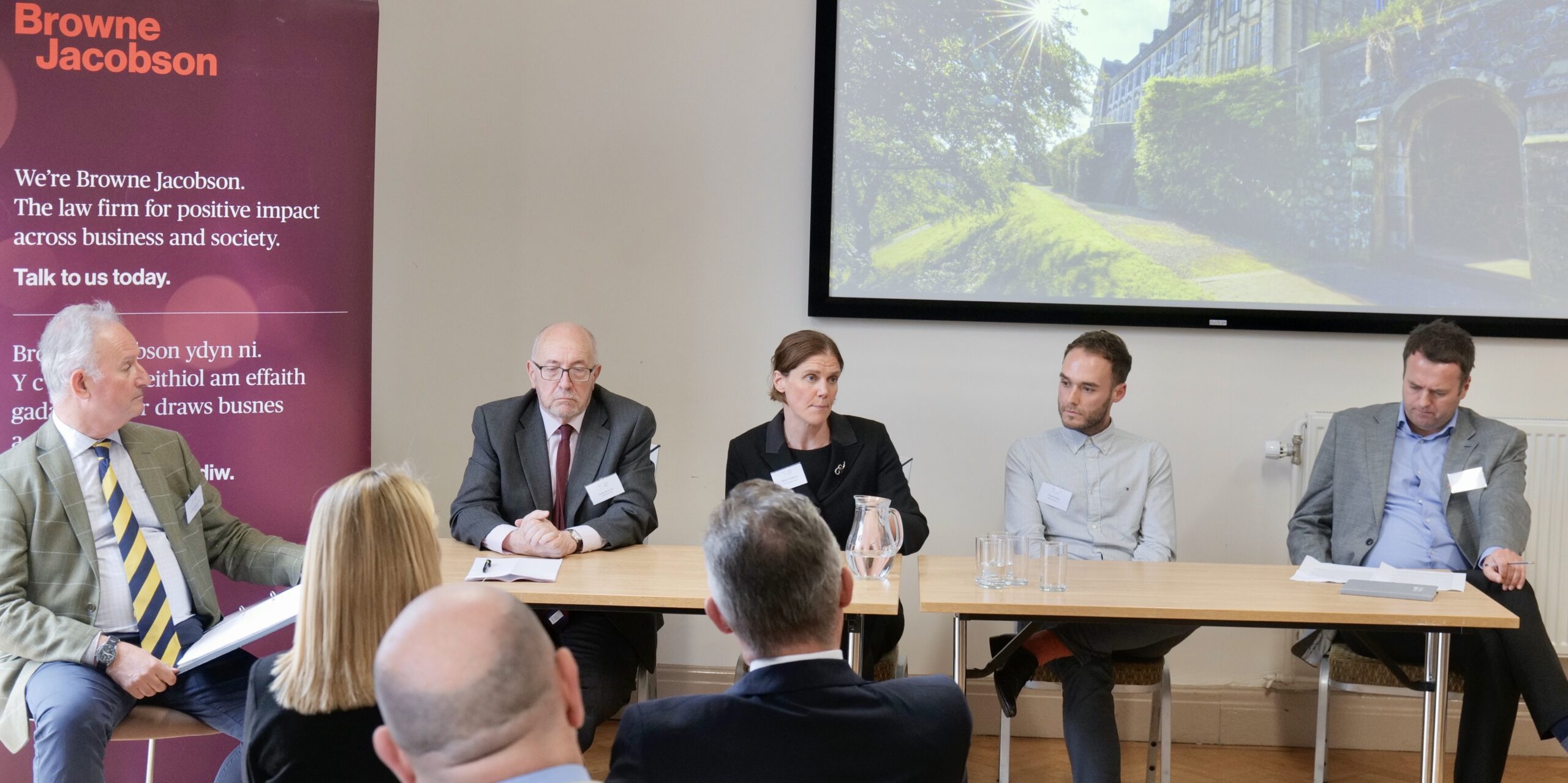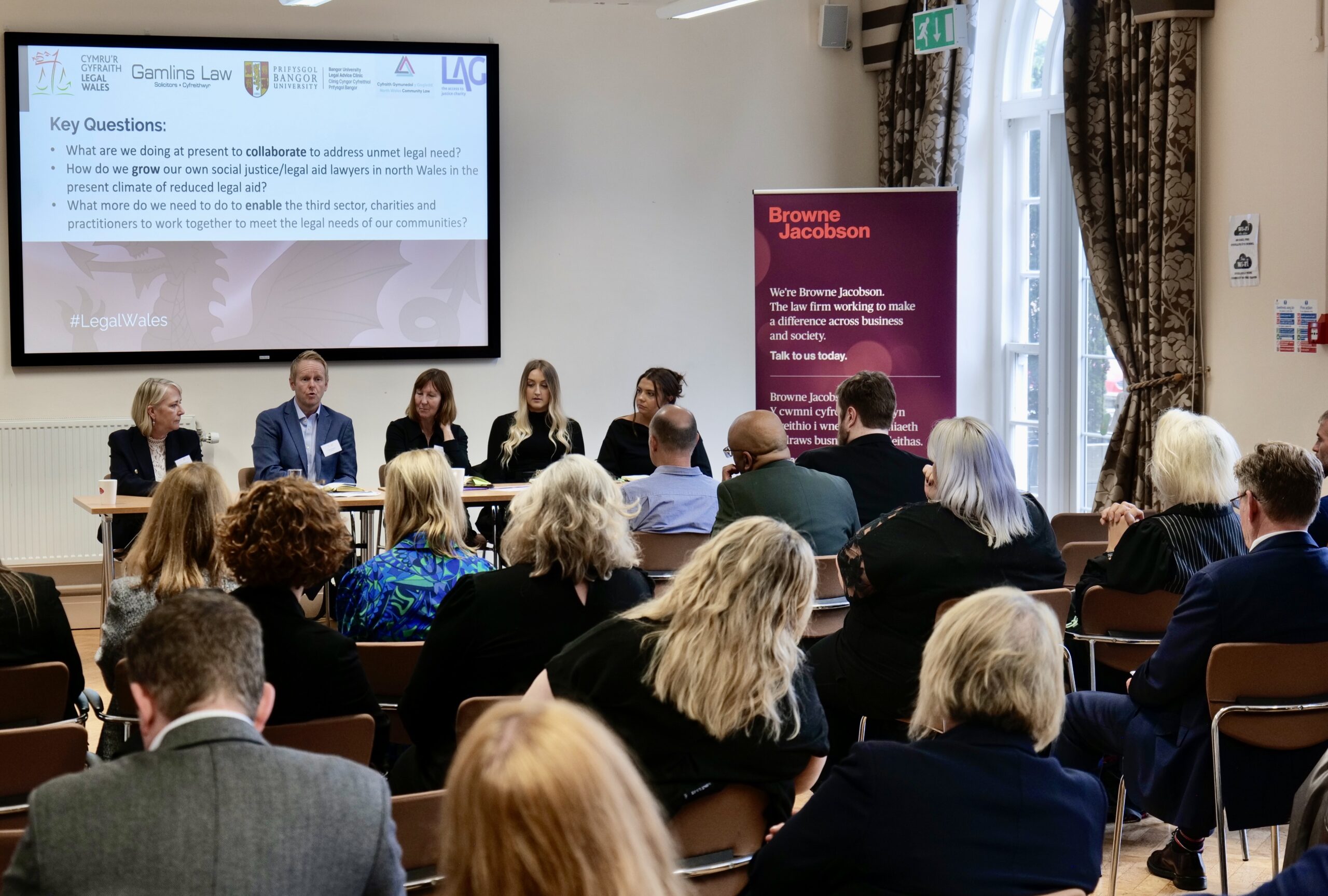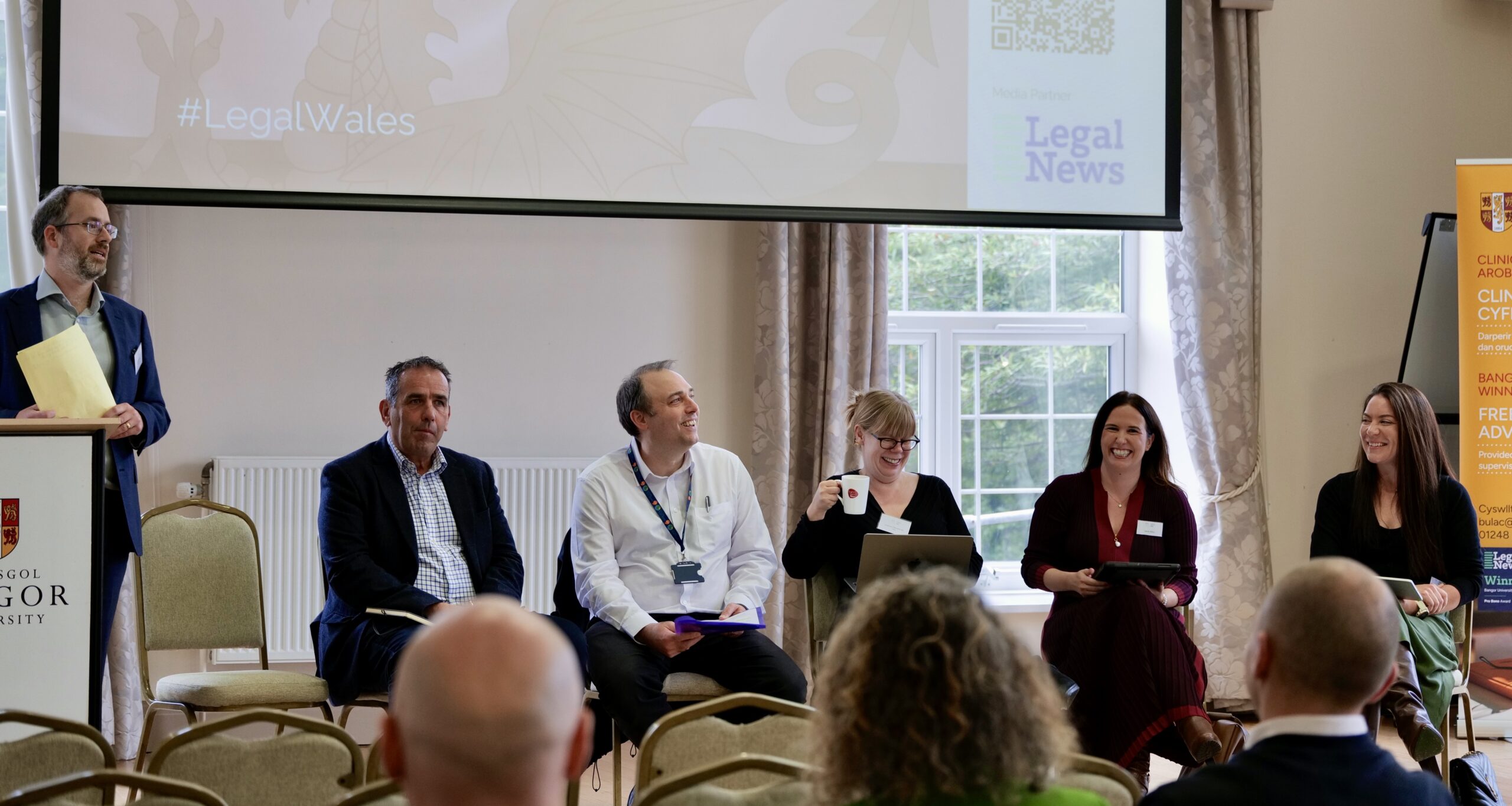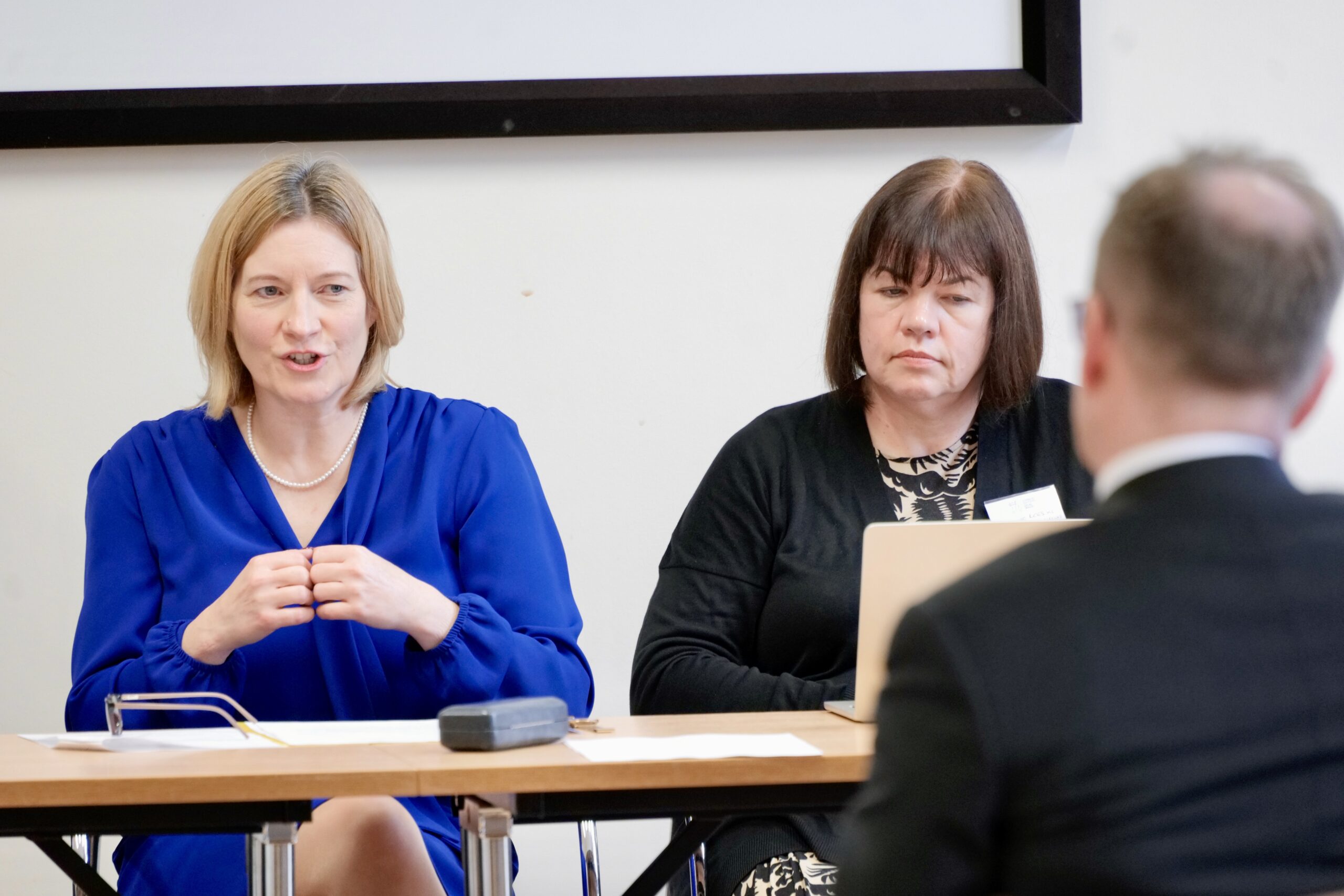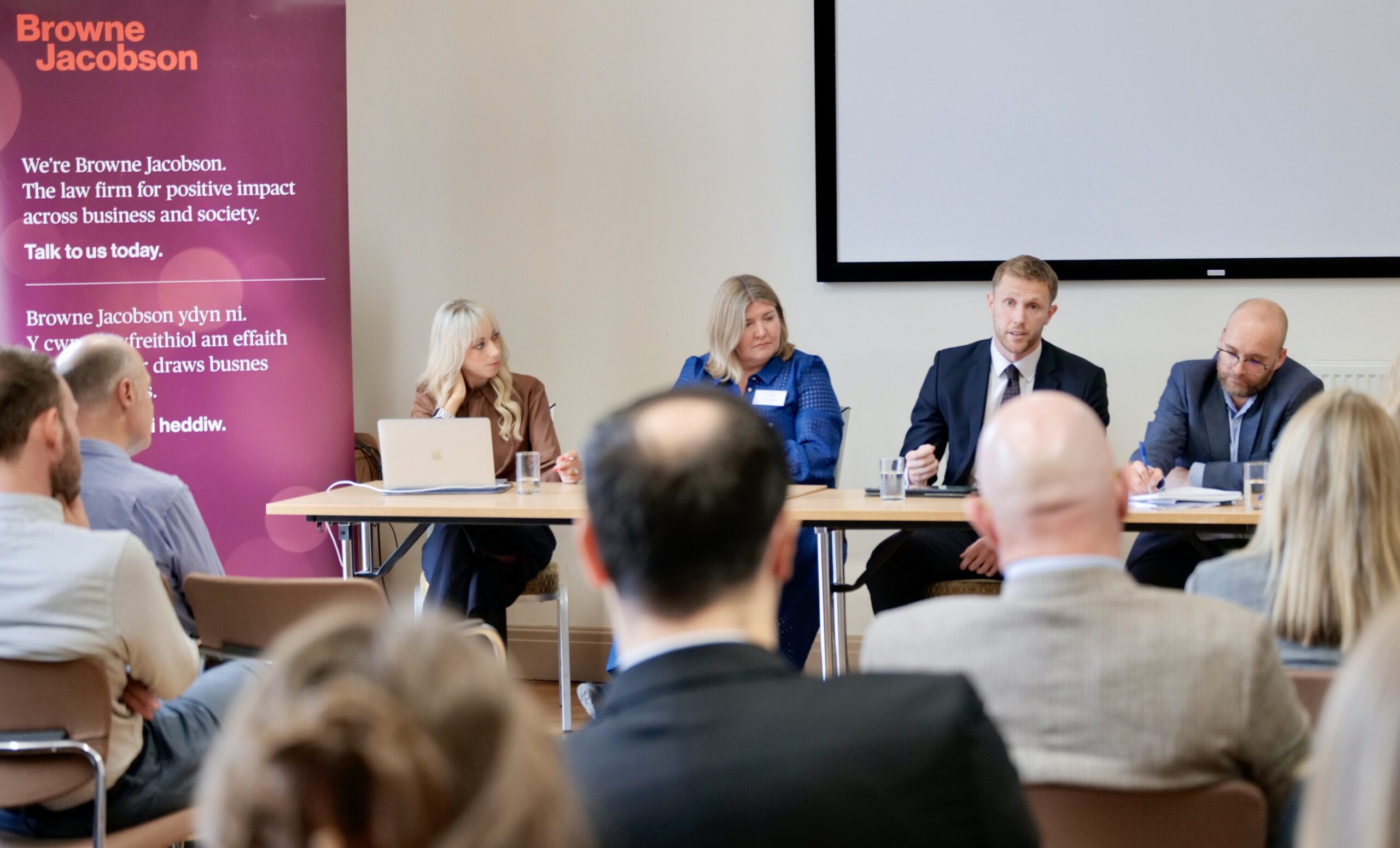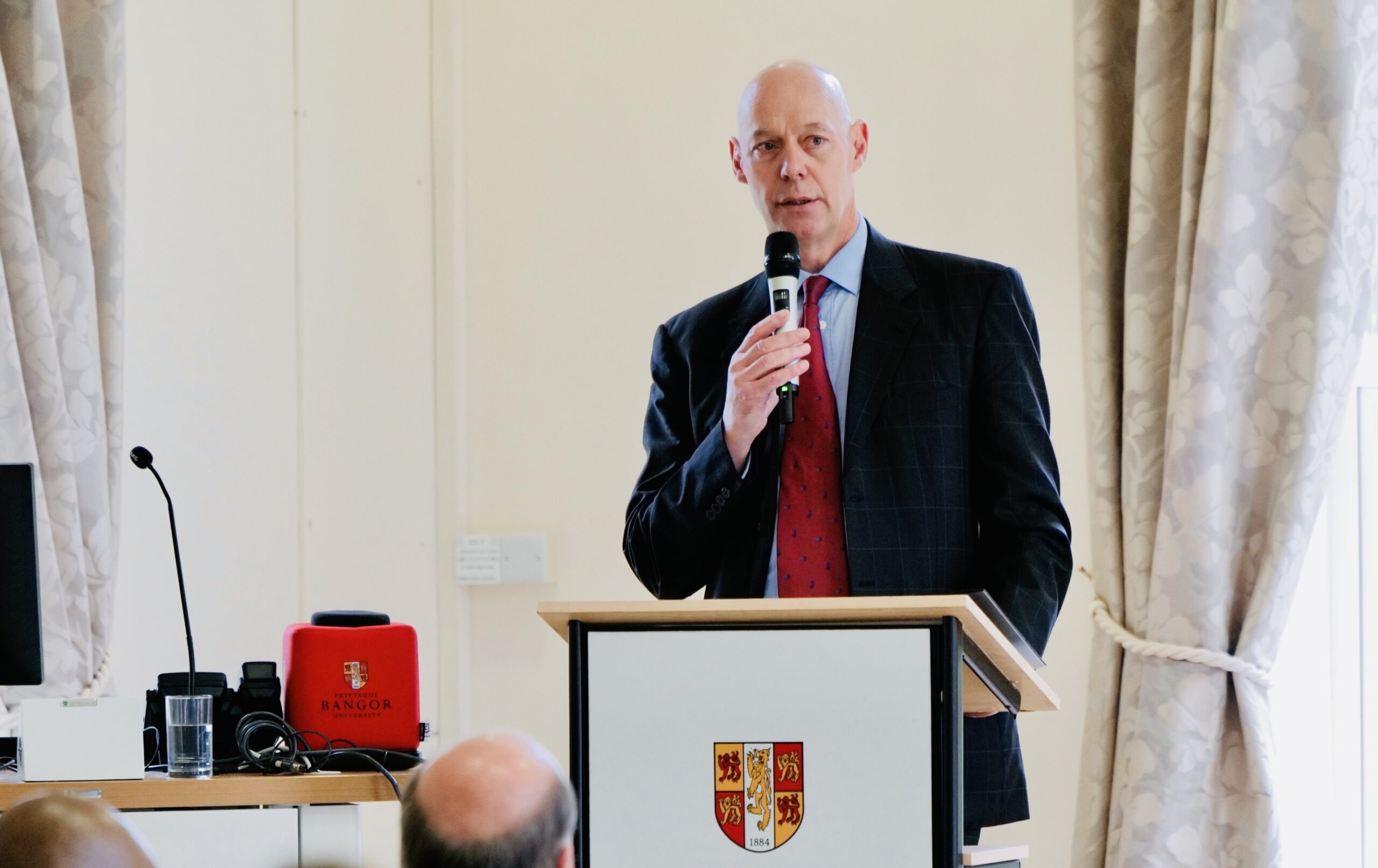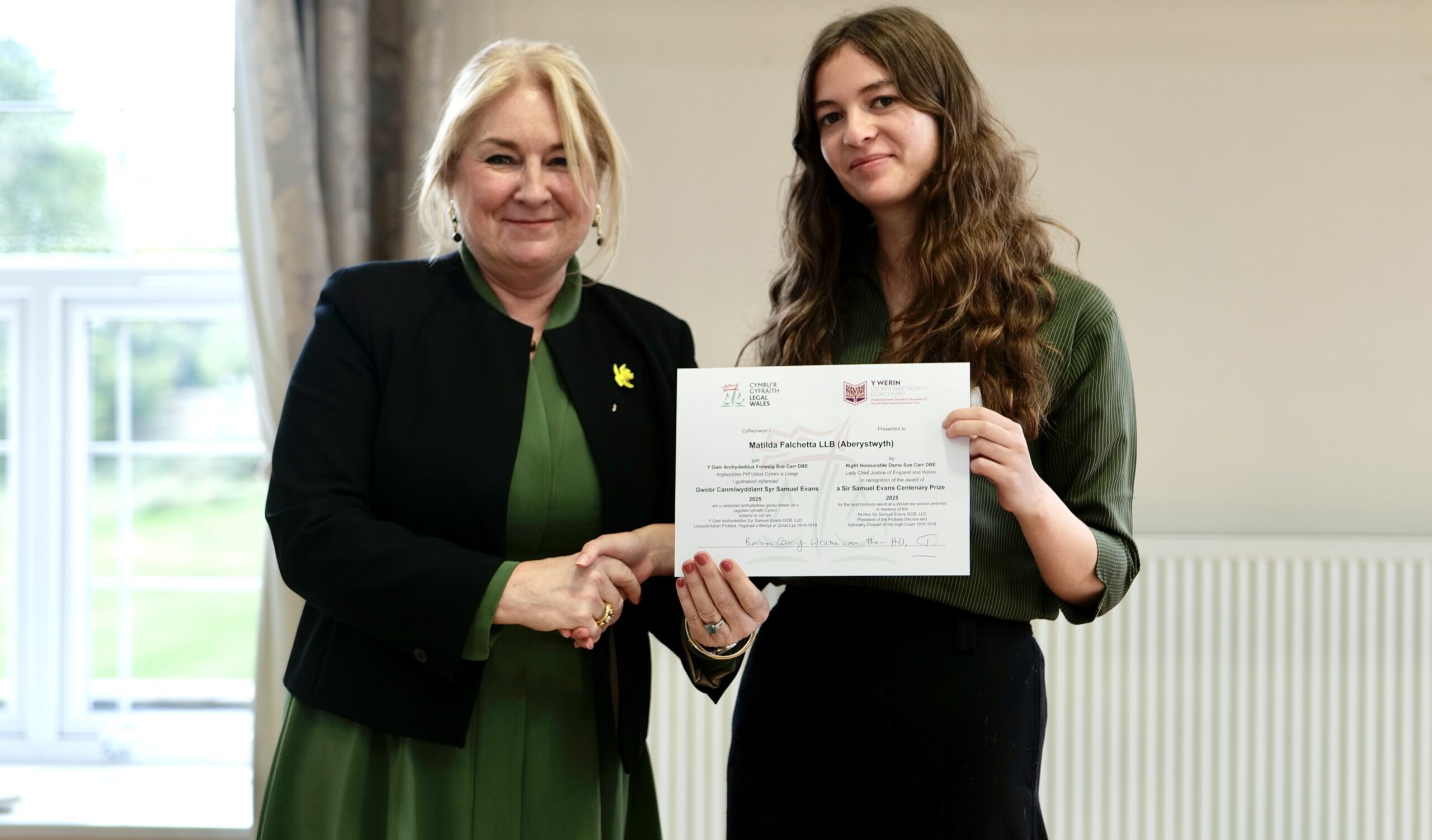Bangor University hosted the 23rd Legal Wales Foundation Conference & Dinner on 10 October 2025 – an annual event that draws together leading figures from the Welsh and English legal profession, senior judiciary, statutory bodies and government. Emma Waddingham, Editor, Legal News Wales, reflects on another impressive event and key messages.
Renowned for its open access to high-level speakers and vibrant debate, the conference once again reflected the legal profession’s central role in shaping communities across Wales.
A sharper spotlight on Wales’ legal direction
This year’s programme focused on how Wales can build a justice system that is clearer, fairer and more responsive – and placed the Welsh Government’s legal ambitions under sharper scrutiny than in recent years.
Delegates heard both critique and optimism, reflecting the evolving legal, constitutional and social landscape Wales now faces. The event remains a focal point for law and policy professionals, from both England and Wales, to debate how access to the profession and access to justice are evolving in Wales.
Fellowship and transition
Opening the conference, Jonathan Elystan Rees KC, Chair of the Legal Wales Foundation, highlighted the event’s twin strengths: intellectual depth and collegiality. He paid warm tribute to Huw Williams, co-founder and Programme Director, who steps down from his long-held role this year.
Proceeds from the conference continue to support the Legal Wales – Lord Edmund-Davies Legal Education Trust and its Access to Law Summer Scheme, which provides opportunities for talented students from under-represented backgrounds to gain experience across the Welsh legal system.
Keynote speakers
The 2025 conference attracted an impressive line-up, including:
- The Lady Chief Justice of England and Wales, Rt Hon. Baroness Carr of Walton-on-the-Hill DBE – the first woman to hold the post.
- The Counsel General for Wales and Minister for Delivery, Julie James AS.
- President of the Law Society of England and Wales, Mark Evans.
- Tim Eicke KC, UK Judge of the European Court of Human Rights (2016–2025).
- Rt Hon. Sir Peter Fraser, Chair of the Law Commission of England and Wales.
The President of the Law Society: honouring 200 years and a shared future
Mark Evans, President of the Law Society of England and Wales, used his keynote to mark the Law Society’s 200th anniversary – a moment, he said, not just for celebration but reflection.
Mark began by acknowledging the unique place of Wales in the joint jurisdiction and the depth of its legal talent:
“Across our profession, Wales continues to demonstrate that legal excellence is not confined to geography. It is built on collaboration, purpose and public service.”
He spoke warmly about the Society’s bicentenary year, celebrating ‘two centuries of progress toward fairness, access and equality under the law’. He drew attention to the challenges still facing solicitors today – including funding pressures, diversity in leadership, and the pace of technological change – urging that the next century of the profession must be defined by inclusivity, innovation and trust.
Mark highlighted the Society’s ongoing partnership with the Law Council of Wales and the importance of ensuring Welsh practitioners are fully represented in policy debates:
“As the law continues to evolve differently across the nations, our profession’s unity of purpose must remain stronger than ever. What binds us is the rule of law – and our collective responsibility to uphold it.”
“We are not simply custodians of the law; we are stewards of trust. That is our shared legacy and our future.”
The Counsel General in focus – accessibility and ambition
In one of the most anticipated addresses, Julie James AS set out the Welsh Government’s vision for a more accessible and user-centred legal system.
She championed codification and consolidation as tools not just for legislative tidiness but for transparency and usability, citing planning law reform as an example of progress.
James’ message was clear: bilingual law is essential, not symbolic, ensuring everyone in Wales can engage with legislation in their language of choice.
Turning to criminal justice, James called for a shift from punishment to prevention, emphasising evidence-based community interventions and cross-sector collaboration:
“We need more focus on what drives people to commit crime, and on empowering local professionals to do what works best for each individual.”
She underscored that justice cannot be divorced from housing, health, education, and mental health – and pledged to monitor forthcoming UK legislation to ensure alignment with Welsh priorities.
Devolution, not separation
James reiterated that while a separate Welsh jurisdiction is not on the table, greater control over justice functions such as probation and youth justice offers meaningful progress. Wales, she said, is pursuing co-designed and co-commissioned approaches with the UK Government to improve local outcomes.
Sustaining the profession
James also warned of the strain on Wales’ legal workforce. Criminal practice in particular faces major challenges in retention, recruitment and remuneration.
She urged both Westminster and Welsh Government to recognise the profession as a public good, not just a service:
“Law reform must walk hand-in-hand with investment in people.”
The ECtHR: A former judge’s view
In a timely contribution, Tim Eicke KC reflected on the ongoing debate around the European Convention on Human Rights (ECHR), reminding delegates that:
“The European Court of Human Rights is more necessary and relevant now than it has been for decades.”
He defended the ECHR as a ‘living instrument’, essential to the UK and Wales’ social and civil progress.
Regional focus and recognition
Delegates joined six lively breakout sessions exploring topics from diversity and inclusion to access to justice, alongside an anniversary session celebrating the Welsh Language Tribunal.
A standout was “Transforming North Wales”, part of the wider Transforming Wales series linking law, regional development and community outcomes.
The Sir Samuel Evans Prize 2025 for the best undergraduate result at a Welsh Law School went to Matilda Falchetta LLB (Aberystwyth University).
The Lady Chief Justice: progress, pride and partnership
Closing the conference, The Lady Chief Justice, returned to address the Conference for the third time, delivered an expansive and heartfelt speech that celebrated both progress and partnership within the Welsh justice system.
She began by paying tribute to Huw Williams, (Co-Founder of the Legal Wales Conference, Programme Committee Chair and Chief Legal Adviser to the Senedd), describing him as “the architect of Legal Wales” whose contribution “cannot be overstated”. Reflecting on her own journey and her role as the first woman to hold the office of Lady Chief Justice, she praised Wales for its record of trailblazing women in law and leadership, noting that “the Welsh female trajectory does not stop.”
Her remarks celebrated Wales’s “remarkable performance” across the courts – highlighting how, despite pressures on staff and estate, Welsh courts continue to outperform the national average in case processing times.
The Lady Chief Justice also addressed linguistic equality and representation, reaffirming her commitment to embedding bilingualism throughout the judiciary. She said:
“I’m still learning Welsh – I’m on section two of Duolingo,” she joked, before stressing that cyfraith – the Welsh word for law – literally means shared judgment. “It reminds us that law itself is a collective act of trust and fellowship.”
Carr also reflected on her visits to Welsh courts and prisons, and her continued engagement with the Senedd and Welsh Government. “Change is in the air,” she said, referring to judicial reform and the proposed new Cardiff Civil Justice Centre, “but I am confident that Wales continues to lead by example.”
Her closing passage – exploring the etymology of Welsh words such as cartref (home) and cyfraith (law) – left delegates reflecting on the moral and human underpinnings of justice, concluding:
“The law is a place of love and shared purpose – and that is why every time I visit Wales, I feel quite at cartref.”
Monumental Women in Wales
The after-dinner event, held in Bangor University’s Pritchard-Jones Hall, featured guest speaker Helen Molyneux, former CEO and Founder of NewLaw Solicitors and Co-Founder of Monumental Welsh Women.
Helen traced her rise through private practice, founding NewLaw in 2004 – one of the first Alternative Business Structures – and growing it to more than 400 staff before its sale in 2014. Reflecting on her post-law career, she spoke candidly about the enduring challenges for women in leadership:
“For much of my career, I thought the battle was won. But stepping outside the legal world made me realise how far we still have to go.”
The Monumental Welsh Women project, she explained, was born from a simple realisation: until recently, there was not a single statue of a real Welsh woman anywhere in Wales. (Link to more information here.)
Since launching the campaign, Molyneux and her co-founders have raised over £600,000 and commissioned five statues of remarkable Welsh women – from educator Betty Campbell in Cardiff to suffragette Lady Rhondda in Newport. The fifth and final statue, of Elizabeth Andrews, is now in progress at the Rhondda Heritage Park. Helen said:
“Elizabeth’s motto was ‘Educate, Organise, Agitate’ – and that’s what we’ve done. We educated ourselves about the gap, organised incredible women, and agitated until we changed the face of public art in Wales.”
Her address ended with a call to support the final fundraising effort and to “ensure that women’s achievements become part of the everyday landscape – not the exception, but the norm.”
Collaboration and continuity
Legal Wales continues to epitomise Wales’ collaborative legal culture – a space where lawyers, lawmakers and judges connect, share insights, and influence the profession’s direction.
Jonathan Elystan Rees KC, Chair of the Legal Wales Foundation said:
“Every year the Legal Wales Conference aims to be stimulating, thought provoking and invigorating. Yet again the Conference hit the mark. Keynote speakers of the very highest calibre, breakout sessions covering a wide range of legal topics, and an audience that was engaging.
“Proud as we are of putting on an event of the highest order in 2025, our attention has already turned to October 2026 when we hope to put on another great event for the legal sector in Wales.”
As Conference Director for the past five years, I’m proud to see the event grow and grateful to our partners and supporters — especially as all proceeds fund LEDLET’s social mobility work.
As Huw Williams told me:
“Legal Wales remains a place of fellowship, learning and shared purpose… Long may it continue to strengthen the rule of law — the cyfraith — for the benefit of our communities and all who serve them.”
Speeches – 2025
Legal News Wales has published the full speeches, photos and delegate materials from the 2025 event. Click here to view and download.
Legal Wales Conference & Dinner 2026
Next year, the Conference and Dinner returns to Cardiff on Friday 9 October 2026, with fringe events running through the week. More information will be posted here, and on the Legal Wales Foundation Conference page soon.
With thanks to this year’s Headline Sponsors: Browne Jacobson and 30 Park Place chambers and Lunch Sponsor: University Wales Trinity St David.
Exhibitors: Peak Costs, Geldards LLP, CILEx and Blake Morgan LLP.
Media Partner: Legal News Wales.



